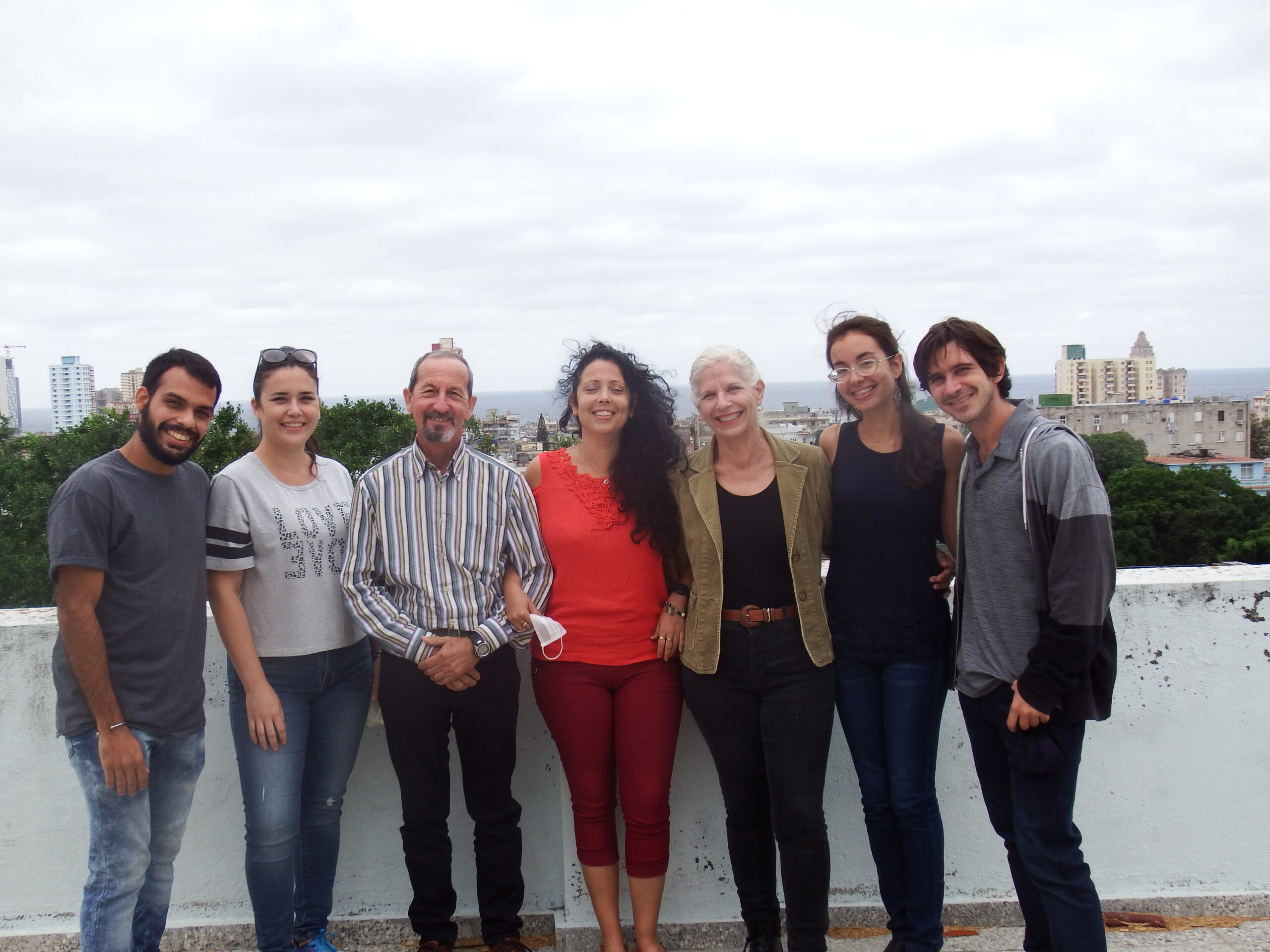Over the coming months, we will be profiling the previously announced winners of this year’s AOS awards in a series of posts on Wing Beat.
The Ralph W. Schreiber Conservation Award is an AOS senior professional award that honors extraordinary conservation-related scientific contributions by an individual or small team. The award is named for Ralph Schreiber, a prominent figure in American ornithology known for his enthusiasm, energy, and dedication to research and conservation, particularly of seabirds. This award consists of an original piece of avian art, framed certificate, and an honorarium. One of this year’s two awardees is Cuba’s Bird Ecology Group (BEG) of the faculty of Biology at the University of Havana, Cuba, led by Martin Acosta Cruz, selected for their decades-long dedication to conservation, education, and research of Cuba’s avifauna: Martin Acosta Cruz (leader), Lourdes M. Mugica Valdés (Honorary Fellow of AOS), Alieny González Alfonso, Ianela García Lau, Alejandro Rodríguez Ochoa, Daniela Ventura del Puerto, Elio A. Fontes Otero, Orlando Torres Fundora, Dennis Denis Ávila, Ariam Jiménez Reyes, Antonio Rodríguez Suárez, and José L. Ponce de León García.
Since 1978, the BEG, the oldest birding group in Cuba dedicated to Cuban bird conservation, has contributed significantly to the knowledge and conservation of Cuban birds through excellent research, education, and conservation, thanks to the dedication, enthusiasm, and efforts of its professors and researchers. Despite numerous economic and logistical difficulties, the BEG has been unwavering in its efforts to expand protections for Cuban birds. They developed a proposal for two new protected areas along important coastal wetlands; supported the proposal for five Cuban Important Bird Areas (IBAs); recommended the inclusion of the West Indian Whistling-Duck and the Masked Duck in the Red Book of threatened species of Cuba and the Birdlife Red List of Threatened Species; and successfully banned the hunting of two threatened species, the West Indian Whistling-Duck and White-Crowned Pigeon.
Since 2016, the BEG has annually surveyed between 68 to 180 km of coastline to assess the conservation status of wintering Piping Plovers on the Cuban archipelago. They reported 104 Piping Plovers in 2016, the highest number of individuals ever reported for Cuba, which, through meticulous band resighting, has helped identify the breeding origin of wintering Piping Plovers along these Cuban coastlines. Since 2012, the BEG has participated in the Caribbean Waterbird Census, contributing to this joint effort in the region.
BEG research has been published in 18 books (5 of which were written solely by members of the BEG) and 128 scientific, peer-reviewed papers on Cuban birds. Research is focused on feeding ecology of waterbird species; the composition and structure of the bird communities in coastal ecosystems; the ecology of birds using the largest rice paddies and shrimp farms in the country; the ecology of urban birds using Havana city ecosystems (mangroves, parks, botanical gardens); the reproductive ecology of waterbirds and urban birds; and research associated with threatened species or species of special concern such as West Indian Whistling-Duck, Piping Plover, White-Crowned Pigeon, and Reddish Egret. Further, for the first time, they identified migration routes and the wintering area of the Cuban Martin using geolocators. The results have been crucial in highlighting the environmental aspects of rice cultivation that are essential for their sustainability.
The BEG has an outstanding record of support for the next generation of Cuban ornithologists, having supervised nine Ph.D. theses, 14 Masters theses, and 46 undergraduate theses, with three more Ph.D. theses and two Master theses currently in progress. Additionally, the BEG has been training staff from Cuban protected areas and other conservation institutions through eight national workshops through eight institutions. Their capacity-building efforts have been aimed at teachers from primary and secondary schools in urban and rural localities. The group has also organized 21 Environmental Education Campaigns focused on endemic birds, and on wetlands and aquatic birds.
For the past 15 years, the BEG are the Cuban organizers of the Caribbean Endemic Bird Festival, recruiting and maintaining a network of dedicated promoters, including undergraduate students, for this month-long festival celebrating birds throughout the region. In recognition of their contributions to avian conservation, AOS is pleased to name the Bird Ecology Group, Faculty of Biology, University of Havana, Cuba, as a 2021 recipient of the Ralph W. Schreiber Conservation Award.
